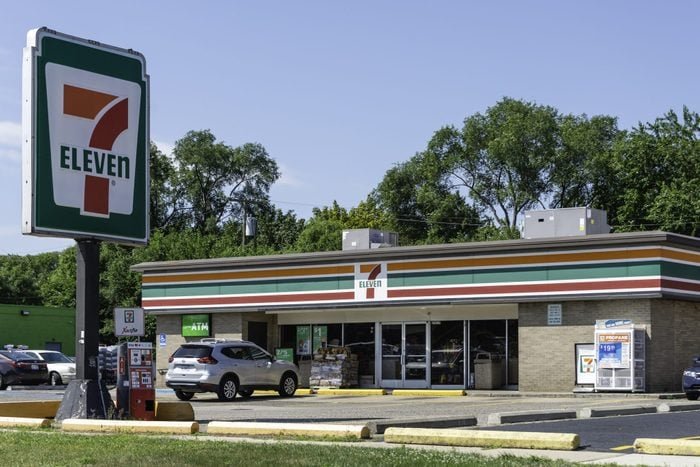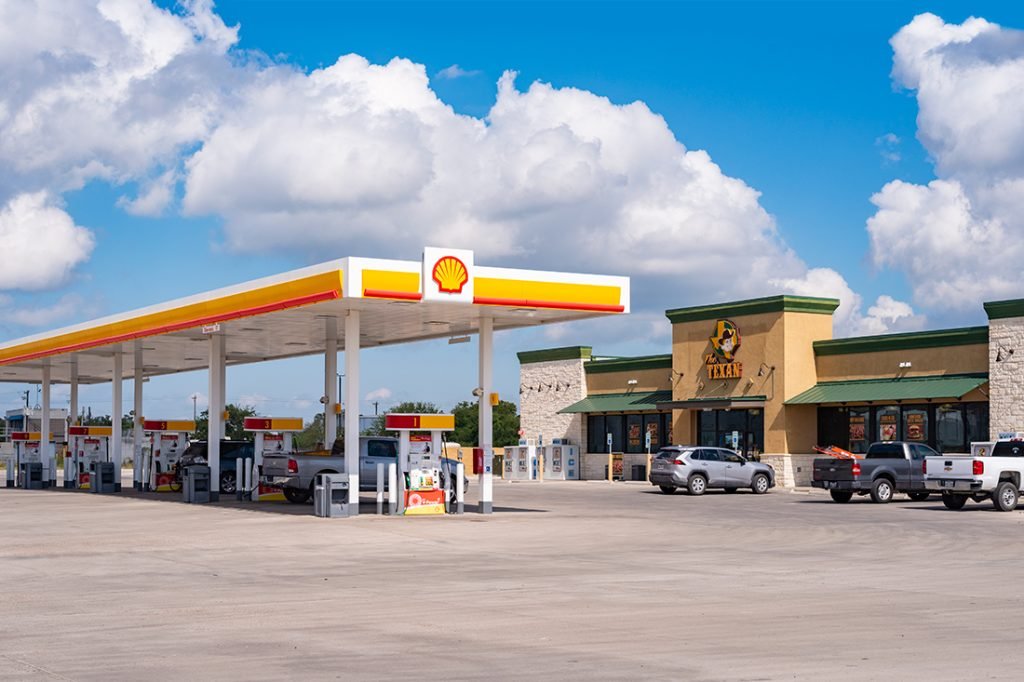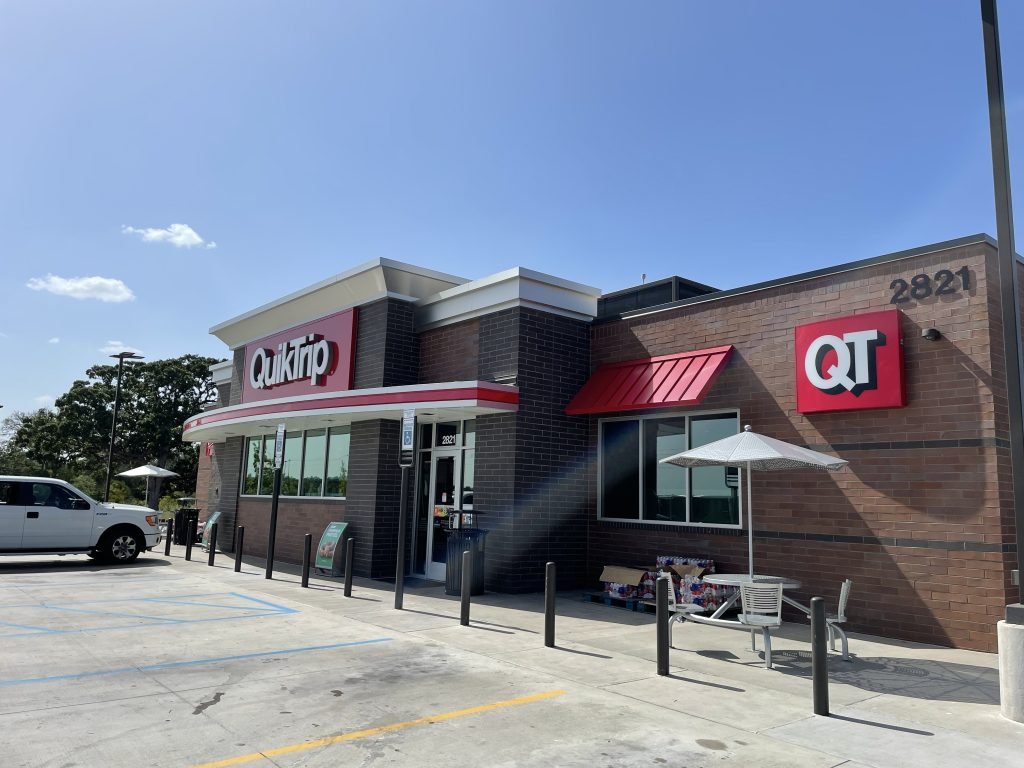Commercial Appraisals for Gas Station & Convenience Stores
Gas Station and/or Convenience Store properties are not only essential for our daily commute, but also hold significant commercial value. With the ever-increasing demand for fuel and convenience store services, the appraisal of gas stations has become a crucial aspect of the real estate industry. Our appraisers have vast knowledge and years of experience of appraisal of gas stations and convenience stores.
The majority of gas stations and convenience stores are owned by individuals versus institutional entities. Commercial appraisals of this property type warrant special attention to a variety of characteristics including location, traffic flow, demographics as well as possible in-place leases. There are also multiple scenarios and options in appraising these types of properties. Understanding the complex nature of accurate gas station and/or convenience store appraisals is vital for buyers, sellers, and investors in this dynamic market. Our appraisers bring a vast amount of knowledge of this property type and are prepared to meet any client’s needs.
Key Factors we consider in developing a commercial appraisal of a gas station and/or convenience store are:
- Factors influencing the value of gas stations include location analysis, environmental factors, customer base, market demand, and property condition.
- The methods for concluding to value: Cost Approach, Sales Comparison Approach and Income Approach
- Environmental risks, market volatility, additional income streams, regulatory compliance, and the need for specialized expertise
One important factor is the commercial appraisal process is location analysis, which includes factors such as population density, traffic patterns, and proximity to major highways. Gas stations located in high-traffic areas with a large customer base tend to have higher values. Additionally, environmental factors play a significant role in determining the value of gas stations. The potential for environmental contamination from underground storage tanks or other hazardous materials can negatively impact the value of a gas station. Environmental assessments and compliance with regulatory requirements are crucial in assessing the value of a gas station property.
Three Approaches (Methods) considered in the commercial appraisal process of a gas station/convenience store are:
- The Cost Approach considers the expenses associated with constructing a similar property. In this approach, we estimate the cost to construct a similar gas station from scratch, taking into account factors such as land acquisition, materials, labor, and permits. By analyzing these costs and adjusting for depreciation, we can determine an accurate value for the property.
- The Sales Comparison Approach involves comparing the property to similar sales in the market. By conducting a thorough market analysis and property inspection, we can identify comparable properties that have recently sold. These properties should be similar in terms of location, size, condition, and amenities. We then analyze the sale prices of these comparable properties to determine an appropriate value for our subject property. The market analysis allows us to assess current trends and conditions in the gas station industry. It helps us understand how supply and demand factors may impact property values. Additionally, the property inspection enables us to identify any unique features or characteristics of our subject property that may affect its value.
- The Income Approach is commonly used in the valuation process of commercial properties, including gas stations. The Income Approach focuses on the potential income generated by the property and calculates its value based on this cash flow analysis. There are five key aspects of the Income Approach: Gross Potential Income, Effective Gross Income, Operating Expenses, Net Operating Income, Capitalization Rate.
FAQ to Texas Commercial Appraisals
The most important step to avoiding additional expenses is hiring your Commercial Appraiser directly. DO NOT order from an AMC (appraisal management company) that will add 20-40% on top of the appraiser’s fee. AMC’s often assign the appraisal report to random inexperienced appraisers because they bid lowest. We have competitive appraisal fees because we have eliminated “middlemen” which also reduces report completion times.
Be aware that many of these “management companies” are in other states operated by personnel with NO APPRAISAL EXPERIENCE OR LICENSES. It is important to ask any Appraisal Company about local licensing, qualifications, and experience prior to engaging them for any commercial appraisal assignment. Choose Texas Commercial Appraisals for a competitive fee and local MAI Designated Appraiser!
The MAI designation (Member Appraisal Institute) is highly respected throughout the world as one of the top certifications for commercial appraisers. It requires hundreds of hours of education and training before being granted this title which helps ensure quality services when engaging an appraisal firm or individual for your project. By choosing Texas Commercial Appraisals for your needs, you will gain peace of mind knowing that your property is being handled by experienced professionals who understand both local market conditions as well as national trends.
It is important to ask potential appraisers questions about their qualifications and experience prior to hiring them for a job. It is also wise to ask for references from other clients regarding their level of service and professionalism. By doing this, you can ensure that you are working with an experienced professional who will perform the appraisal accurately and efficiently.
When it comes to the commercial appraisal process in Texas, there are certain expectations for appraisers. They should be familiar with the local market, have a thorough understanding of the property type being appraised and its value, and be willing to communicate their findings clearly. In addition, they should be flexible and willing to work with the client’s needs and timeline.
Appraisers must also adhere to a strict set of ethical standards. This includes providing accurate assessments that are unbiased and free from conflicts of interest. Appraisers must also maintain confidentiality of all information acquired during the appraisal process. Furthermore, they should provide clear written reports that explain their conclusions in detail.
The appraisal process for commercial properties can be a lengthy one, so it’s important to know the industry standard. Depending on the complexity of the property and the appraiser’s schedule, an appraisal should take anywhere from one to four weeks. Furthermore, having all necessary documents ready ahead of time can help speed up the process significantly.
In order to ensure that your appraisal is completed in a timely manner, it’s important to hire an experienced local appraiser who knows the laws governing appraisals in your market area. Working with a qualified professional who understands all aspects of the process is key to getting your appraisal finished quickly and accurately.
The cost of a commercial appraisal can vary depending on the size and complexity of the property being appraised. Generally, the larger and more complex the building or land being appraised, the higher the fee will be. There are other factors that can determine appraisal fees such as intended use of the report, property type, and expedition of services.
On average, a commercial appraisal might range anywhere from $1,500 to many thousands of dollars. Specialized or large-scale assignments can be much more expensive and require several appraisers working simultaneously on multiple reports. You can expect to pay upwards of $10,000 to $50,000 for specialized or large-scale assignments.
Choose TCA for higher quality reports!
Previous Client Reviews!
D. Napier
“I’ve used Texas Commercial Appraisals several times for commercial appraisals in the Houston and Dallas areas. I chose them initially because they are competitively priced with great turn times. I continue to use them because their service is top notch.”
R. Brice
“We recently used Texas Commercial Appraisals to appraise a property we have owned over 15 years. This was by far the best Commercial Appraisal and hands down the best service. They respond quickly to calls or emails and the Appraiser Greg did a thorough appraisal and took the time to discuss details. I definitely would recommend this company to anyone considering a commercial appraisal in Austin or anywhere they service!”
F. Robbins
“I needed an appraisal one of our properties in the Memorial area. Our Appraiser was professional, courteous, thorough, and helpful. The Appraisal Report that was provided following his appraisal was complete and showed significant attention to detail. Seriously, I only wish we had found them sooner...”
G. Matthews
“I was in a serious time crunch and this company was able to schedule the site visit within 48 hours. Our Appraiser was exemplary and the report arrived two weeks later as promised! We exclusively recommend Texas Commercial Appraisals to other investors we know.”
J. Nguyen
"I recently had an apartment complex appraised, the appraiser showed up on time, was professional and conducted a thorough walk through. The report took about 3 weeks but, it was very thorough and spot on! I am very happy with the appraiser and the report.”
J. Martinez
“I was looking to get a Hard-Money loan to renovate and complete additions to my office warehouse. My Lender recommended Texas Commercial Appraisals and thank God they did. The loan funded weeks after the report was delivered, I was impressed!”
T. Washington
“Texas Commercial Appraisals came out on short notice to appraise an investment property I was in the process of purchasing. I found them online and not through my lender. I wanted an independent appraiser since the lender was connected to my broker. They were professional and knowledgeable in all matters. Definitely will use them again and recommend to associates, Thank You!
Arlington ♦ Austin ♦ Beaumont ♦ Corpus Christi ♦ College Station ♦ Dallas
El Paso ♦ Fort Worth ♦ Galveston ♦ Houston ♦ Laredo ♦ San Antonio



